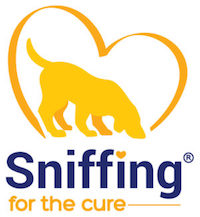Canine dental health is an extremely important part of your dog’s overall health and well-being. Oftentimes canine dental health can be overlooked, but, if not taken care of properly, dental disease can arise and even cause severe complications. These complications can happen in the liver, kidneys, and heart, not just in the mouth. Studies have shown that 80% of dogs develop signs of canine periodontal disease starting at the age of three. To avoid the worst scenario, it is best to start a preventative plan now.
Oral hygiene is very important for humans, but it is also just as important for dogs. Developing a dental routine and practicing good habits at home will leave your dog feeling happier and healthier.
Here are 5 tips for dog dental care:

Start a Dental Routine
Humans benefit greatly from brushing their teeth and the same goes for dogs. Dogs can develop tartar and plaque on their teeth and, if left there, it can cause serious dental issues. It is recommended to brush your dog’s teeth daily, but if doing so every day is not viable with your schedule, once a week will produce sufficient results. When buying a toothbrush and toothpaste, it is important to purchase one that is specifically designed for dogs. Dog toothbrushes and toothpaste are formulated to ensure your dog’s safety. While brushing your dog’s teeth, it is also important to always check for signs of tooth decay.

Schedule Regular Dental Exams
Of course, developing your own dental routine with your pup will help reduce the tartar and plaque, but brushing does not always get everything. It is recommended by veterinarians that dogs receive an oral exam and professional cleaning once a year. Professional dental cleanings provide a proper cleaning that aims to kill the bacteria that can form under the gumline. In order for this dental procedure to take place, vets must anesthetize the dog. Although the idea of anesthetization can sound scary, this is a regular procedure protocol and is administered to all pets while receiving dental care by a professional.

Get Your Dog Chewing
Chewing is a natural behavior that dogs do, but it is actually very beneficial for their oral hygiene. For example, chew toys, bones, ropes, etc. produce friction across their gum line and act as a form of flossing. If you do not already have some, purchase your dog a new chew toy or bone to play with. Not only will your pup be super excited for the new toy in the house, but it will keep their teeth strong and healthy. Once a chew toy or bone is worn out, make sure to replace it with a new one. If your pup has sensitive teeth, there are softer toys available that will make your dog just as happy and provide the same benefits.

Watch Your Dog’s Diet
Your dog’s diet can play a role in their overall dental hygiene. It is important to feed your dogs natural and nutritionally balanced foods. When purchasing dog food, make sure to choose dental health food that has the Veterinary Oral Health Care (VOHC) seal. If you are worried about tooth decay, try buying a dryer formula of dog food that will break down the tartar and plaque that builds up on your dog’s teeth. It is also important to remember, not to feed your dog table food because it is not good for their health. If you are nervous about making a change in your dog’s diet, consult your vet before making any drastic changes.

Give Your Pup Dental Dog Treats
Similar to chew toys, there are dog treats that are specifically designed to reduce the amount of tartar and plaque that forms in your dog’s mouth. When getting these dental treats, remember to look for the VOHC seal because that ensures that they have been tested and proven to reduce plaque and tartar. There are a variety of available options and flavors to make your dog happy and healthy. Not only will your dog be thanking you for the yummy treats, but they will also be thanking you for their bright smile.





No Comments